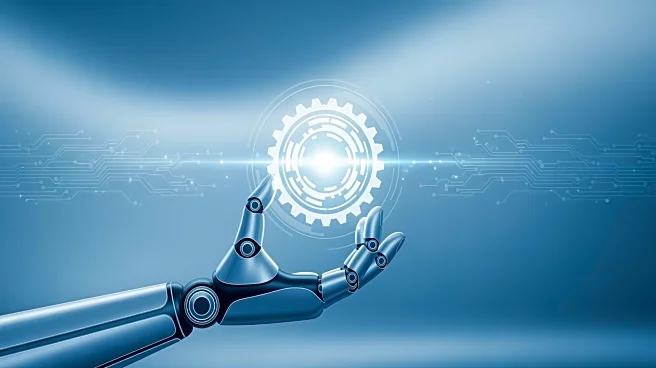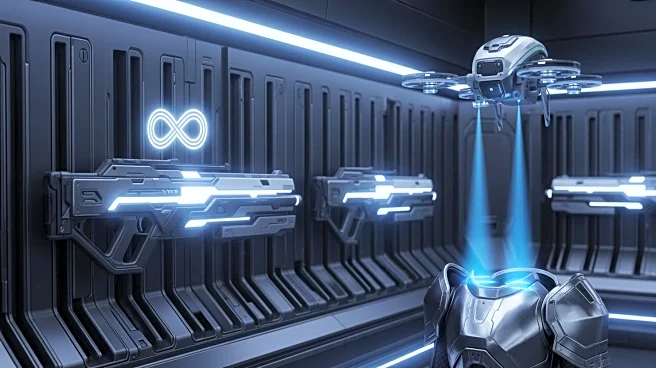What's Happening?
Elon Musk, known for his transformative ventures like Tesla and SpaceX, has made a bold prediction about the future of work. In a discussion with U.K. Prime Minister Rishi Sunak, Musk suggested that artificial intelligence (AI) is advancing at such a rapid pace that many traditional jobs, including technical roles like coding, may become obsolete. He stated that there will come a time when 'no job is needed,' as AI will be capable of performing all tasks. This prediction aligns with the current trajectory of AI development, where massive compute clusters and advanced AI systems are increasingly capable of executing complex tasks. Musk emphasized that the future workforce will need to focus on skills that involve creativity, strategic insight,
and ethical reasoning, as AI will handle execution tasks.
Why It's Important?
Musk's prediction highlights a significant shift in the labor market, driven by AI's capabilities to automate both physical and cognitive tasks. This shift could have profound implications for industries and the economy, as traditional job roles may diminish, leading to potential unemployment challenges. However, it also presents opportunities for those who can adapt by developing skills in problem-solving, creativity, and strategic thinking. Companies and educational institutions may need to rethink their approaches to workforce development, focusing on fostering these skills to prepare for a future where AI plays a central role in business operations. The emphasis on human judgment and direction over technical execution could redefine job markets and economic structures.
What's Next?
As AI continues to evolve, businesses and policymakers will need to address the potential societal impacts of job displacement. This may involve creating new educational programs that emphasize critical thinking and creativity, as well as developing policies to support workers transitioning from traditional roles to new opportunities. Companies leading in AI development, such as Microsoft, Google, and Meta, may play a crucial role in shaping this transition by integrating AI tools that enhance human-AI collaboration. The focus will likely shift towards creating environments where AI augments human capabilities rather than replacing them entirely.
Beyond the Headlines
The ethical implications of AI-driven job displacement are significant. As AI systems take on more roles traditionally held by humans, questions about income distribution, job satisfaction, and societal well-being will arise. There is a need for a balanced approach that considers the benefits of AI in enhancing productivity and the potential drawbacks of increased unemployment. Policymakers and industry leaders must work together to ensure that the transition to an AI-driven economy is equitable and sustainable, addressing both the opportunities and challenges it presents.















